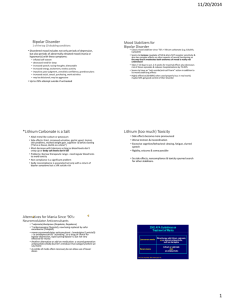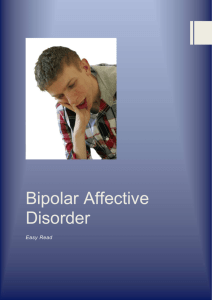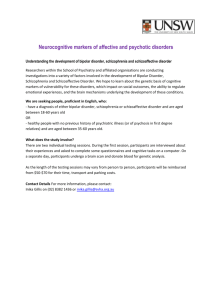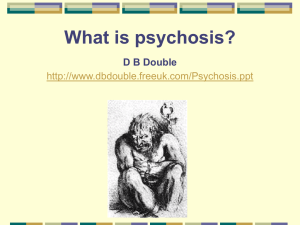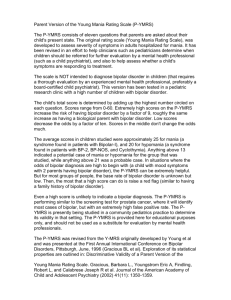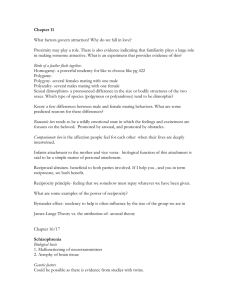bipolar disorder
advertisement
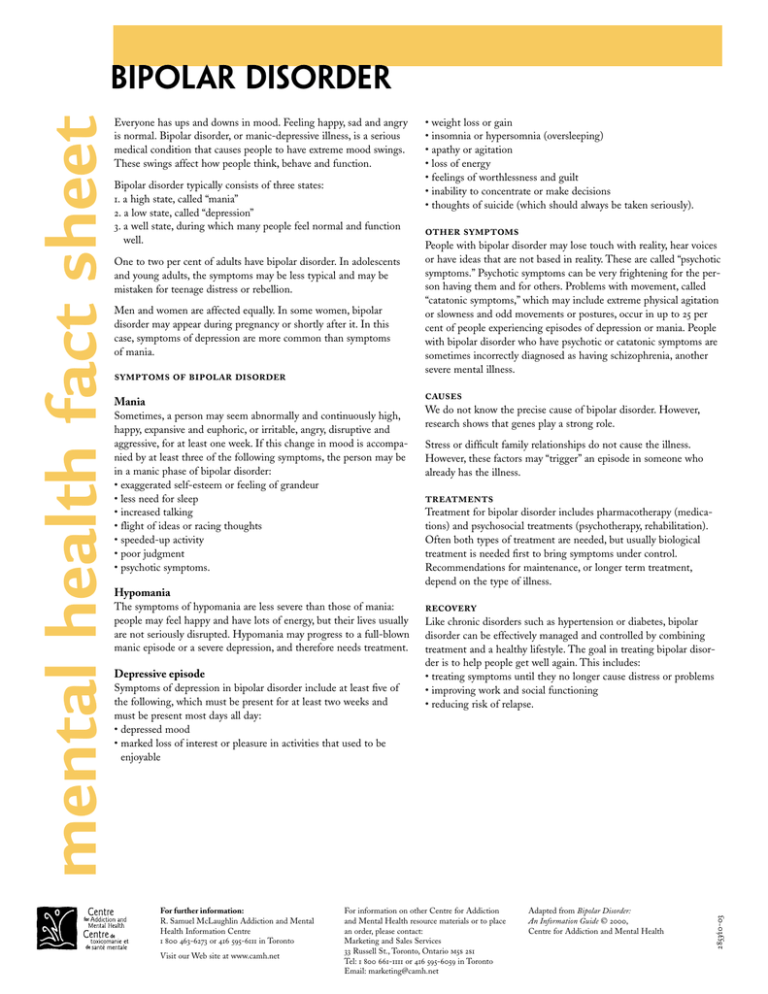
mental health fact sheet bipolar disorder Everyone has ups and downs in mood. Feeling happy, sad and angry is normal. Bipolar disorder, or manic-depressive illness, is a serious medical condition that causes people to have extreme mood swings. These swings affect how people think, behave and function. Bipolar disorder typically consists of three states: . a high state, called “mania” . a low state, called “depression” . a well state, during which many people feel normal and function well. One to two per cent of adults have bipolar disorder. In adolescents and young adults, the symptoms may be less typical and may be mistaken for teenage distress or rebellion. Men and women are affected equally. In some women, bipolar disorder may appear during pregnancy or shortly after it. In this case, symptoms of depression are more common than symptoms of mania. • weight loss or gain • insomnia or hypersomnia (oversleeping) • apathy or agitation • loss of energy • feelings of worthlessness and guilt • inability to concentrate or make decisions • thoughts of suicide (which should always be taken seriously). People with bipolar disorder may lose touch with reality, hear voices or have ideas that are not based in reality. These are called “psychotic symptoms.” Psychotic symptoms can be very frightening for the person having them and for others. Problems with movement, called “catatonic symptoms,” which may include extreme physical agitation or slowness and odd movements or postures, occur in up to per cent of people experiencing episodes of depression or mania. People with bipolar disorder who have psychotic or catatonic symptoms are sometimes incorrectly diagnosed as having schizophrenia, another severe mental illness. Sometimes, a person may seem abnormally and continuously high, happy, expansive and euphoric, or irritable, angry, disruptive and aggressive, for at least one week. If this change in mood is accompanied by at least three of the following symptoms, the person may be in a manic phase of bipolar disorder: • exaggerated self-esteem or feeling of grandeur • less need for sleep • increased talking • flight of ideas or racing thoughts • speeded-up activity • poor judgment • psychotic symptoms. Hypomania The symptoms of hypomania are less severe than those of mania: people may feel happy and have lots of energy, but their lives usually are not seriously disrupted. Hypomania may progress to a full-blown manic episode or a severe depression, and therefore needs treatment. Depressive episode Symptoms of depression in bipolar disorder include at least five of the following, which must be present for at least two weeks and must be present most days all day: • depressed mood • marked loss of interest or pleasure in activities that used to be enjoyable For further information: R. Samuel McLaughlin Addiction and Mental Health Information Centre - or - in Toronto Visit our Web site at www.camh.net We do not know the precise cause of bipolar disorder. However, research shows that genes play a strong role. Stress or difficult family relationships do not cause the illness. However, these factors may “trigger” an episode in someone who already has the illness. Treatment for bipolar disorder includes pharmacotherapy (medications) and psychosocial treatments (psychotherapy, rehabilitation). Often both types of treatment are needed, but usually biological treatment is needed first to bring symptoms under control. Recommendations for maintenance, or longer term treatment, depend on the type of illness. Like chronic disorders such as hypertension or diabetes, bipolar disorder can be effectively managed and controlled by combining treatment and a healthy lifestyle. The goal in treating bipolar disorder is to help people get well again. This includes: • treating symptoms until they no longer cause distress or problems • improving work and social functioning • reducing risk of relapse. For information on other Centre for Addiction and Mental Health resource materials or to place an order, please contact: Marketing and Sales Services Russell St., Toronto, Ontario Tel: - or - in Toronto Email: marketing@camh.net Adapted from Bipolar Disorder: An Information Guide © , Centre for Addiction and Mental Health ⁄- Mania
